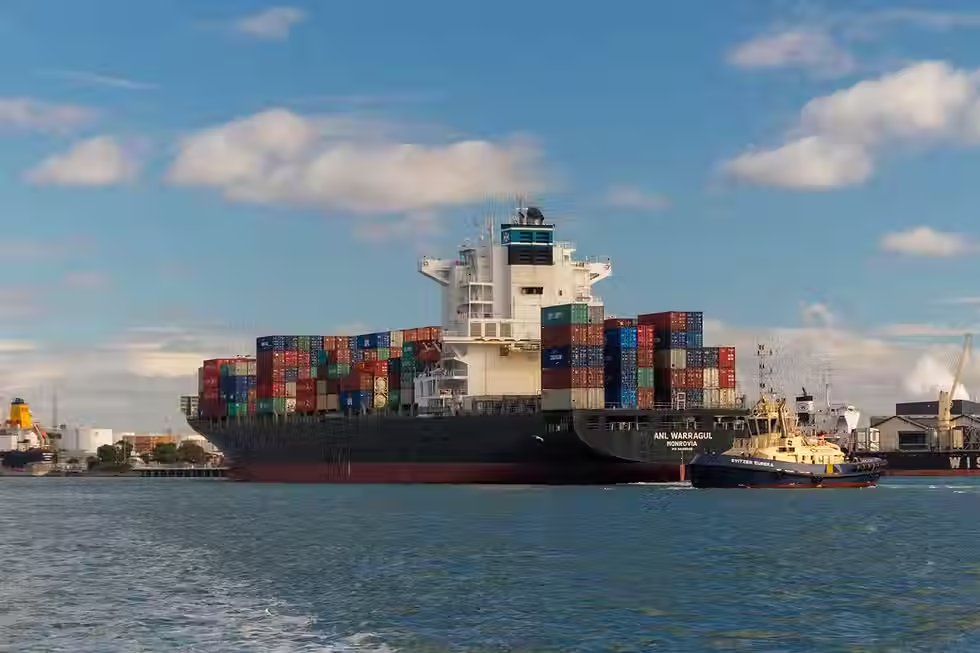U.S. Tariffs: What You Should Know—And How Declaring Agents in Singapore Can Help
- declarationnexus
- Apr 23, 2025
- 4 min read
Updated: May 1, 2025

In 2025, the United States reintroduced sweeping tariff changes as part of a revived “America First” economic strategy. The revisions target key sectors—automotive, semiconductors, and consumer electronics—with heightened import duties from China and several other trade-heavy nations. Politically, the move is considered a blend of protectionism and geopolitical leverage, wrapped in national security rhetoric, impacting customs regulations. It’s also timed just ahead of the U.S. elections, making it a talking point for economic revival and strong-handed diplomacy.
This move may sound like a distant policy shift, but tariffs don't respect borders in a globalised supply chain.
As a re-export hub and linchpin in the regional electronics and logistics sectors, Singapore is indirectly caught in the crossfire. When tariffs drive up the cost of components or finished goods, it affects everything from pricing strategies to customs valuations. Products assembled in ASEAN or transshipped through Singapore may now fall under new scrutiny or face reclassification based on origin, value-added processes, or routing.
Even if you’re not exporting directly to the U.S., you’re probably part of a chain that is.
Tariff Shake-up: What's Actually Changing?
The United States has rolled out a fresh wave of tariff hikes in 2025 to reshape global trade flows and reinforce domestic industries. Key sectors impacted include:
Automotive
Higher import duties on vehicles and components are prompting automakers to rethink cross-border sourcing.
Semiconductors and Tech
Stricter measures on chips and electronics, particularly from China and Taiwan, affect global supply lines.
Consumer Goods
Increased costs for finished products such as appliances, mobile phones, and luxury items may require additional customs clearance in Singapore.
The political backdrop is renewed protectionism, fuelled by campaign-year politics and national security narratives. It’s as much about leverage as local job creation and compliance with customs regulations.
Why It Matters for Singaporean Businesses
This dispute isn’t just a Washington issue—it’s a world trade issue, and Singapore is right in the middle.
Singapore’s economy relies heavily on trade, re-exports, and high-value manufacturing. Any tariff shift changes the flow of goods and business costs. For declaring agents and freight handlers, this creates pressure points:
Customs Declarations are crucial for ensuring smooth cargo clearance in Singapore. – More complex documentation for goods routed through or partially made in restricted countries may require special permits.
HS Code Classifications – Greater scrutiny means classification errors now carry steeper penalties.
Re-routing and Pricing – Global supply chains will adjust. What comes through Singapore may change in volume, origin, or cost, affecting the customs clearance procedures.
The effect is cascading—tariff hikes in the U.S. can alter trade routes, change valuation benchmarks, and even affect demand patterns in Asia, impacting customs clearance.
For Singaporean firms, now’s the time to:
Audit supply chains to ensure compliance with Singapore customs regulations.
Reassess product origin rules.
Keep customs teams updated on policy shifts.
In global trade, no border is truly closed, and no policy shift happens in isolation.
Why Declaring Agents Are More Crucial Than Ever
In a world of tightening trade rules and unpredictable tariff swings, the role of a declaring agent isn’t just clerical—it’s strategic.
One wrong HS code can lead to costly fines, shipment delays, or seizure. A late declaration can ripple across your supply chain, halting production or delivery timelines. The domino effect is real—and often invisible until it’s too late.
That’s where declaring agents step in:
They ensure accurate classification and compliance under evolving rules.
They file on time and flag errors before they become logistical disasters.
They act as a buffer between your business and regulatory choke points, smoothing communication and handling customs escalation if needed.
Strategic Ways a Declaring Agent Adds Value
Today’s agents aren’t just form-fillers but crucial in navigating customs clearance. The best ones play an advisory role that supports your bottom line.
Proactive tariff navigation – They anticipate changes and plan for “what if” scenarios.
Smart sourcing suggestions can help streamline the customs clearance process. – Recommending cost-efficient routes or FTA opportunities to lower duties.
Real-time intelligence – They monitor customs trends, alert you to changes, and reduce risk through foresight.
In an era where a policy tweak halfway across the globe can block your container in Pasir Panjang, a sharp, informed declaring agent is one of your most underrated assets for efficient customs clearance. While the work may take place behind the border, its impact on customs regulations remains prominent.
Practical Tips for Businesses Responding to Tariff Changes
Navigating new tariffs starts with asking the right questions. Speak to your current declaring agent about whether they are actively monitoring tariff revisions. Do they offer scenario planning or just basic filing? Review your import documents now for accuracy in HS codes, declared values, and country of origin—minor errors can now trigger larger costs. If you’ve had delayed shipments, unexpected duties, or noticed inconsistencies, it may be time to register with a new declarant for a second opinion. At Declaration Nexus, we have a fresh set of eyes on your customs classification or valuation approach that could save you thousands—and prevent future compliance issues as global trade rules evolve.
Conclusion
In uncertain times, the right partner makes all the difference. Tariff shifts, stricter classifications, and evolving trade policies mean businesses can’t afford a passive customs strategy. Now’s the moment to assess whether your current approach is reactive or resilient. Are you confident your declarations are future-proof?
At Declaration Nexus, we help businesses navigate these complexities with precision and foresight. From proactive planning to real-time regulatory updates, we do more than clear goods—we clear the path forward.
Talk to us at Declaration Nexus to stay compliant, competitive, and one step ahead in 2025.




